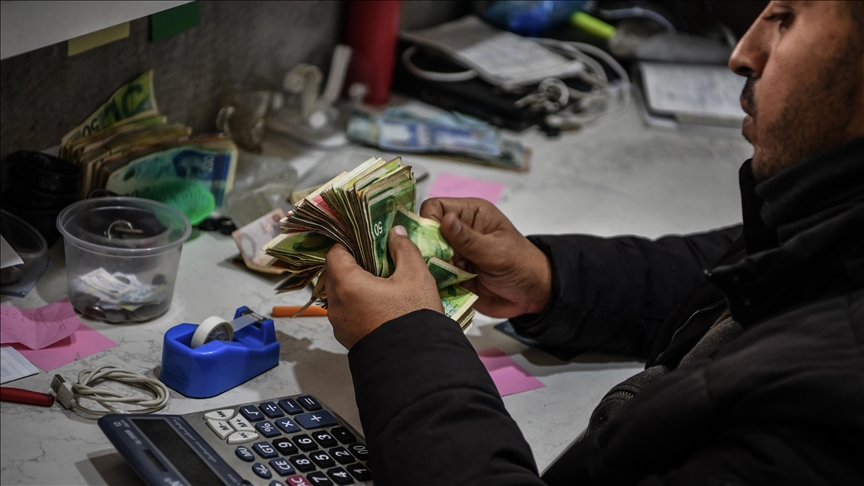Palestinian Monetary Authority urges international action to address Israeli shekel currency bottleneck in banks
Israel refuses to transfer excess shekels from Palestinian banks, imposing restrictions that hinder financing, commercial operations

RAMALLAH, Palestine/ISTANBUL
The Palestinian Monetary Authority called for international intervention Saturday to resolve the crisis of Israeli shekel currency congestion in banks operating in Palestinian territories, warning of economic and banking repercussions that threaten the stability of the financial system, according to a statement.
It came during talks by the Governor of the Monetary Authority, Yahya Shinar, with British Consul General, Helen Winterton, at the authority’s headquarters in the central West Bank.
The statement by the Palestinian Monetary Authority said the meeting discussed “the crisis of excess shekel accumulation in banks operating in Palestine and its repercussions on the economic and banking conditions,” as well as the effect of cash liquidity accumulation on the banks’ ability to meet the needs of citizens and economic sectors, especially the commercial sector.
Shinar pointed out that the agency has taken measures to ensure the continued provision of basic banking services, emphasizing the importance of international community intervention to pressure Israel to comply with existing agreements on the handling of excess shekels.
Winterton affirmed the British government’s support for Palestinian efforts to enhance financial stability, stressing the importance of international coordination to face escalating economic challenges.
The West Bank has witnessed a worsening shekel congestion crisis in recent weeks, prompting banks to halt cash deposits in the currency before the Monetary Authority intervened by setting deposit ceilings and encouraging the adoption of electronic payment methods.
The Monetary Authority said Israel refuses to respond to requests to transfer the excess shekels from Palestinian banks to their Israeli counterparts, imposing restrictions and ceilings that do not meet the banks’ needs for financing and executing commercial operations.
Before the outbreak of the current Israeli war on the Gaza Strip on Oct. 7, 2023, the Monetary Authority coordinated with Israeli banks to transfer excess cash quarterly, amounting to about 4 billion shekels ($1.16 billion).
According to the Association of Banks in Palestine, a non-governmental organization, “billions of shekels” are currently piled up in the vaults of banks operating in Palestine, obstructing the replenishment of bank accounts in Israeli banks and thus affecting the execution of commercial and financial transactions between the two sides.
Under the Paris Protocol on Economic Relations between the Israeli government and the Palestinian Liberation Organization that was signed in 1994, the shekel is the main currency circulated in Palestine, used for payment and purchasing goods and services.
Palestinian exports to Israel account for about 85% of total exports, while imports from the Israeli market make up about 55%, including electricity, water, oil and food.
Most of the commercial operations are conducted in shekels, with an estimated annual average of banking transactions of about 50 billion shekels, according to the Monetary Authority.
The current exchange rate of the US dollar is about 3.45 shekels, according to the average official prices adopted.
There are 13 local and foreign banks operating in the Palestinian market, including seven local banks and six foreign banks, among them five Jordanian and one Egyptian bank.


